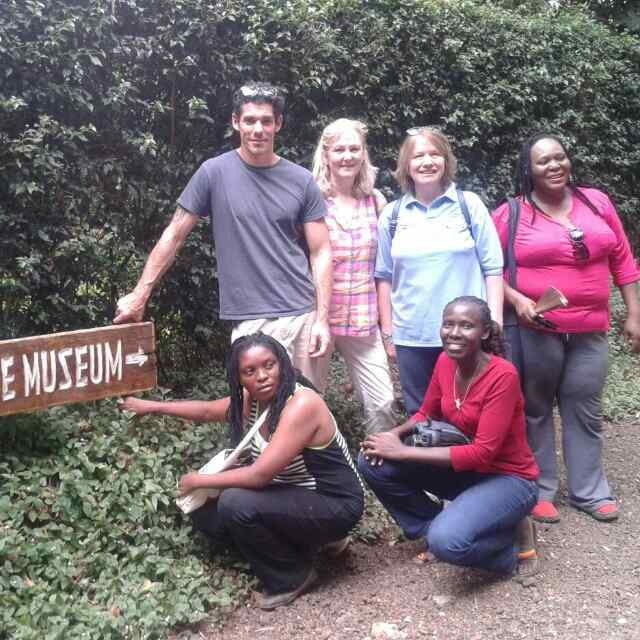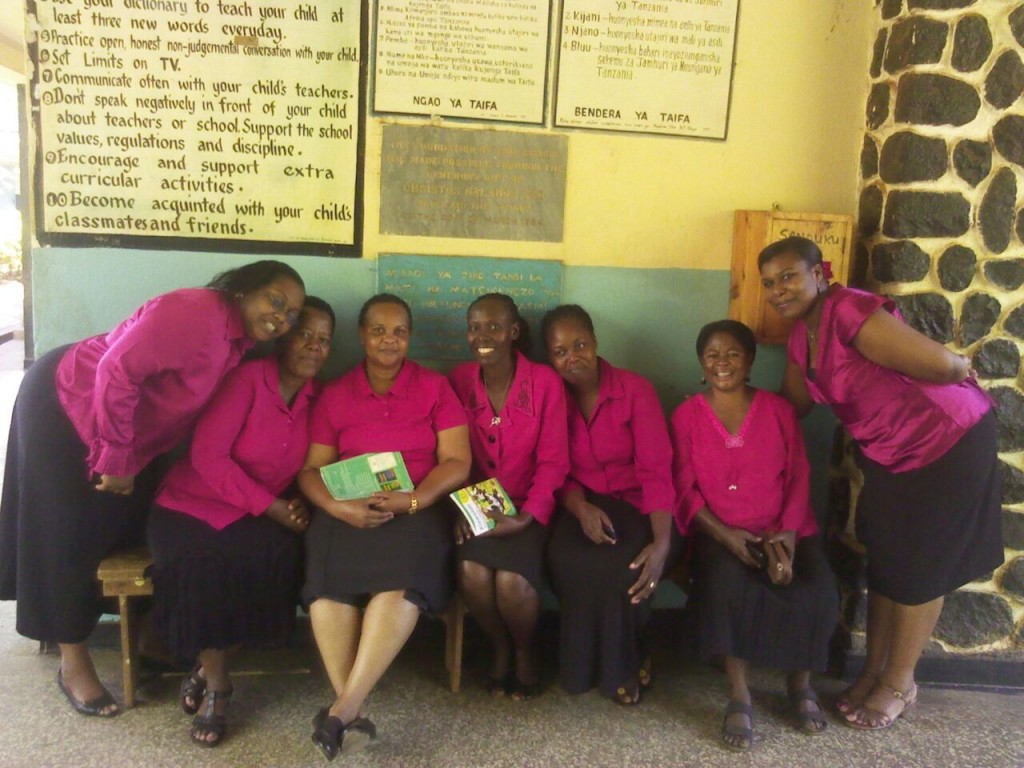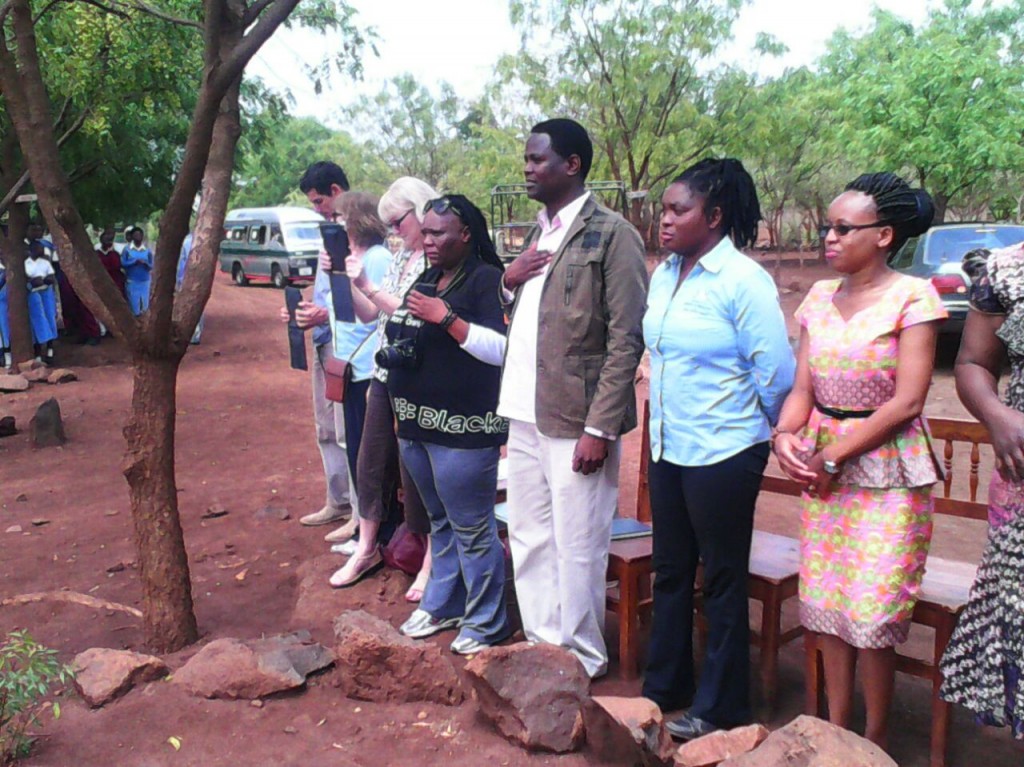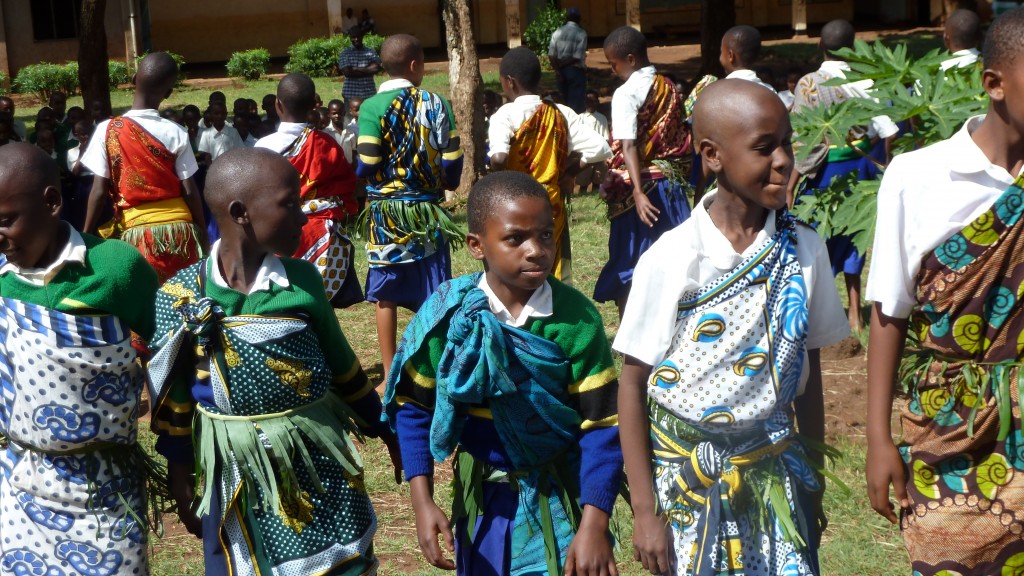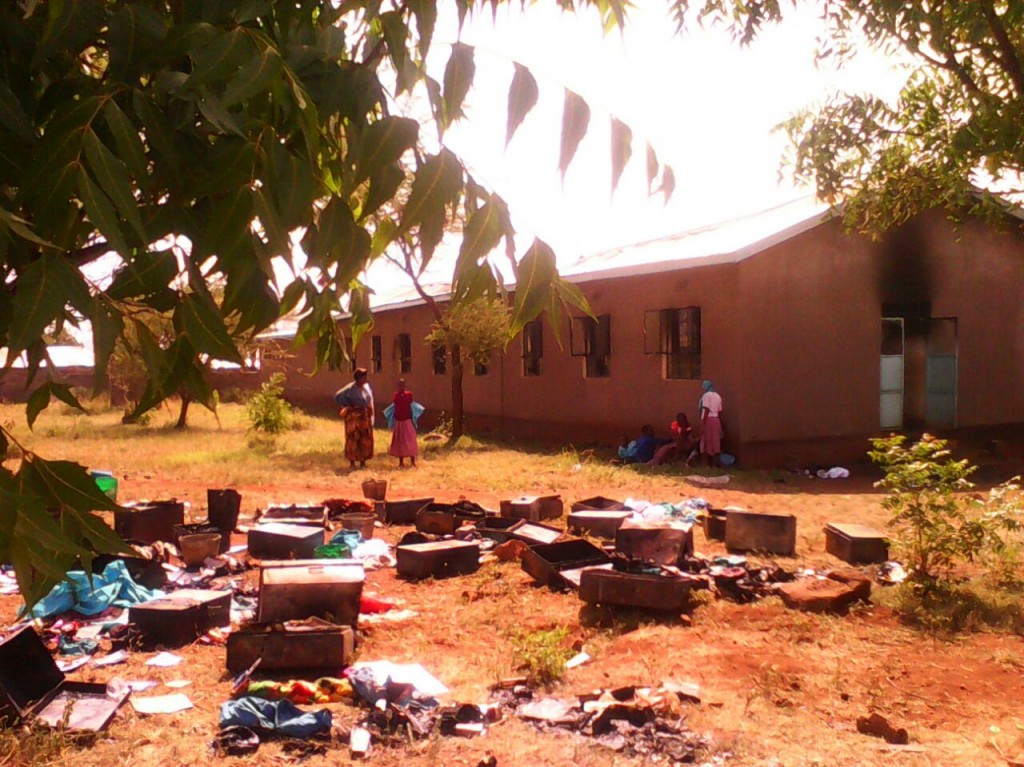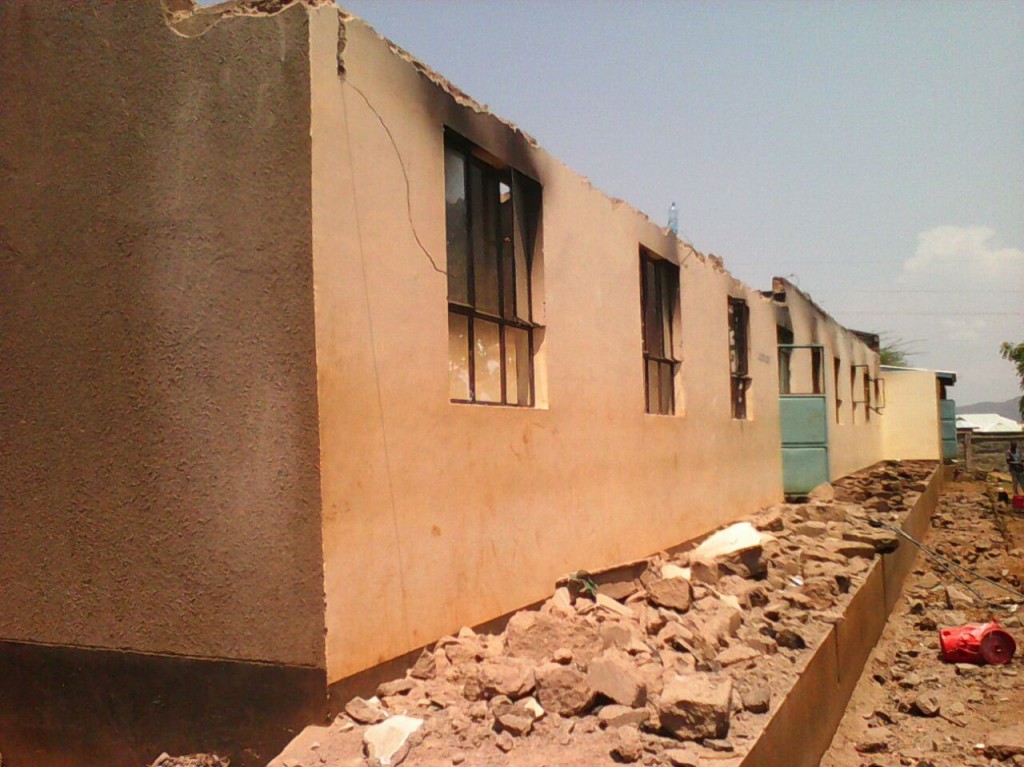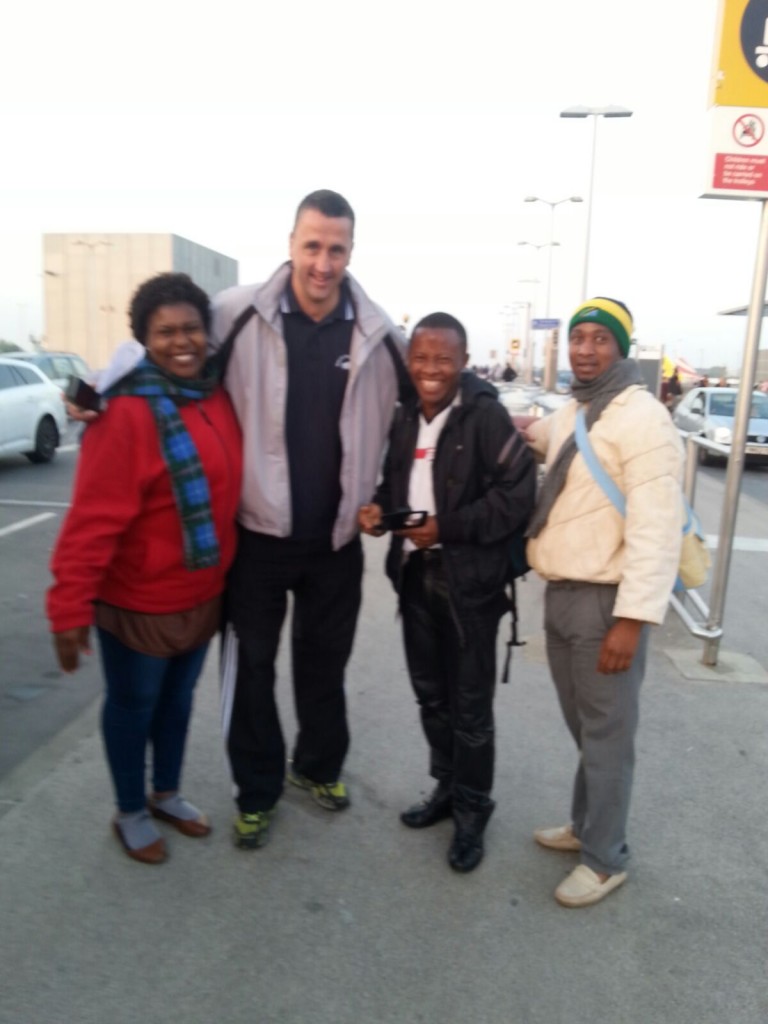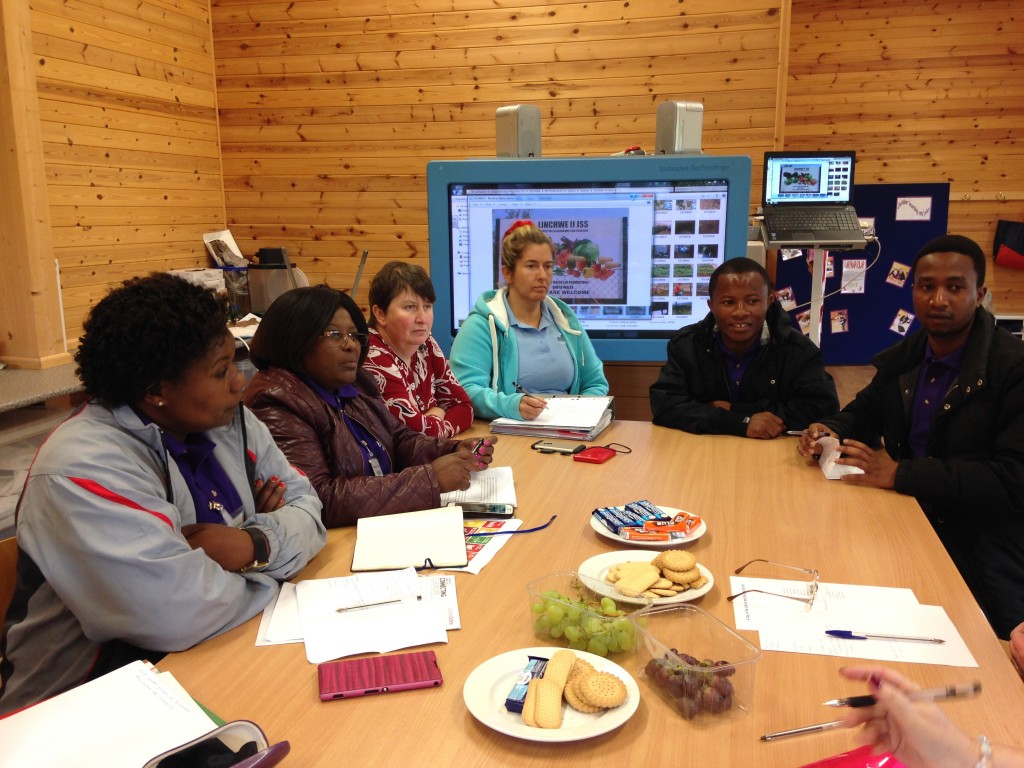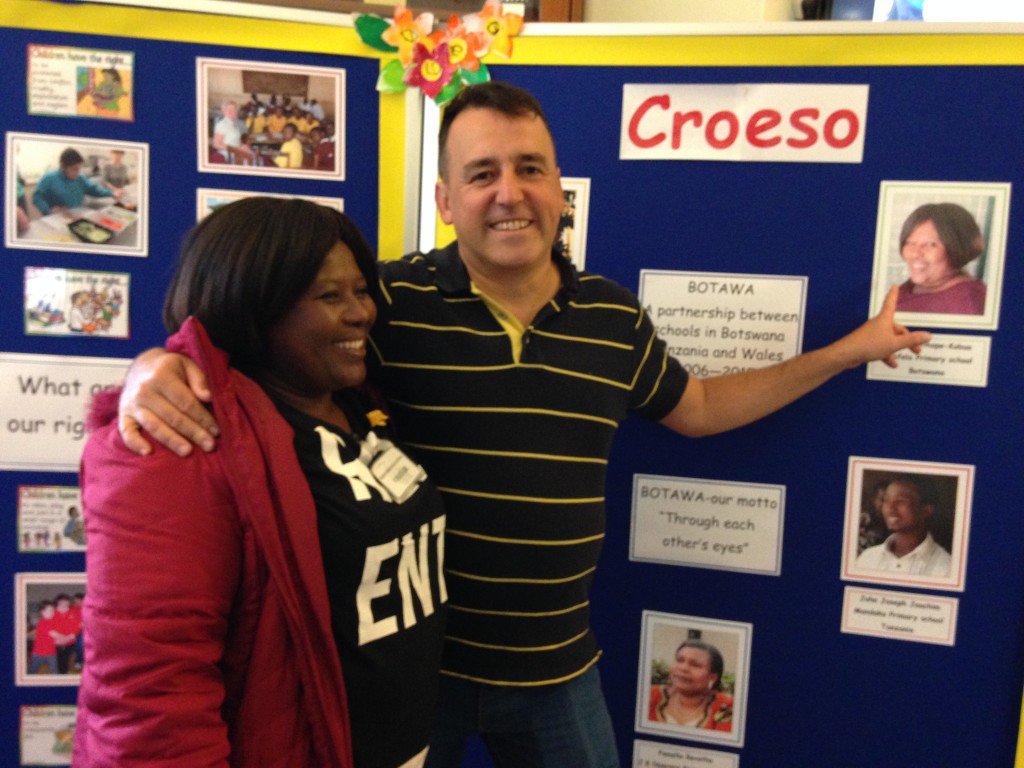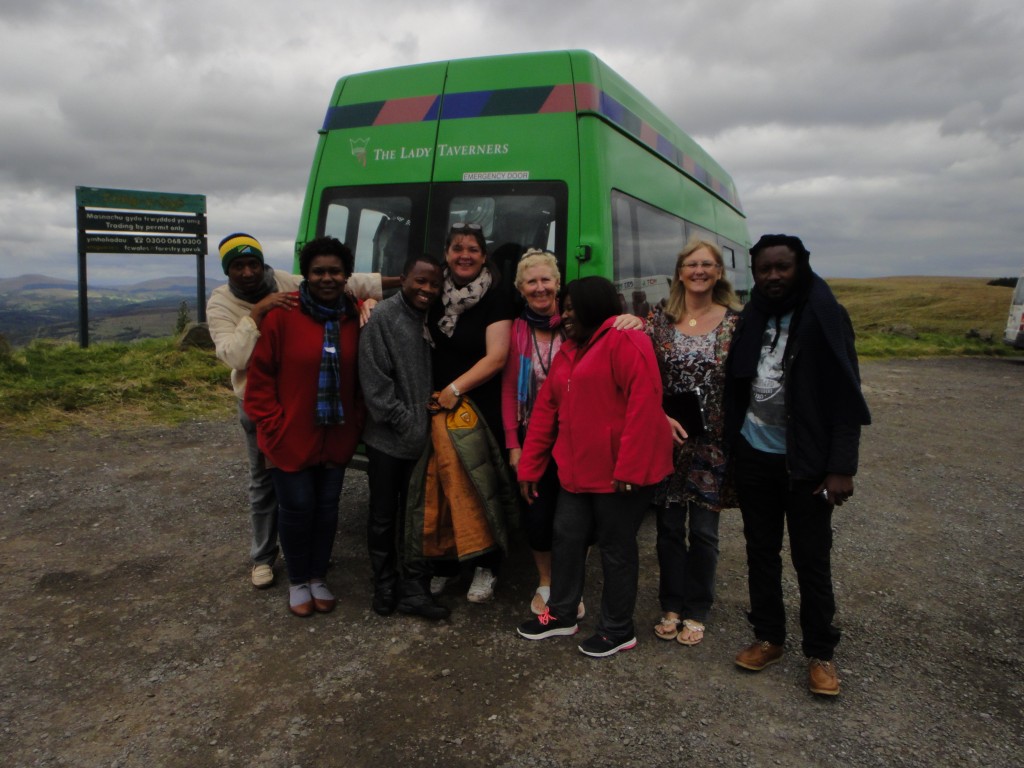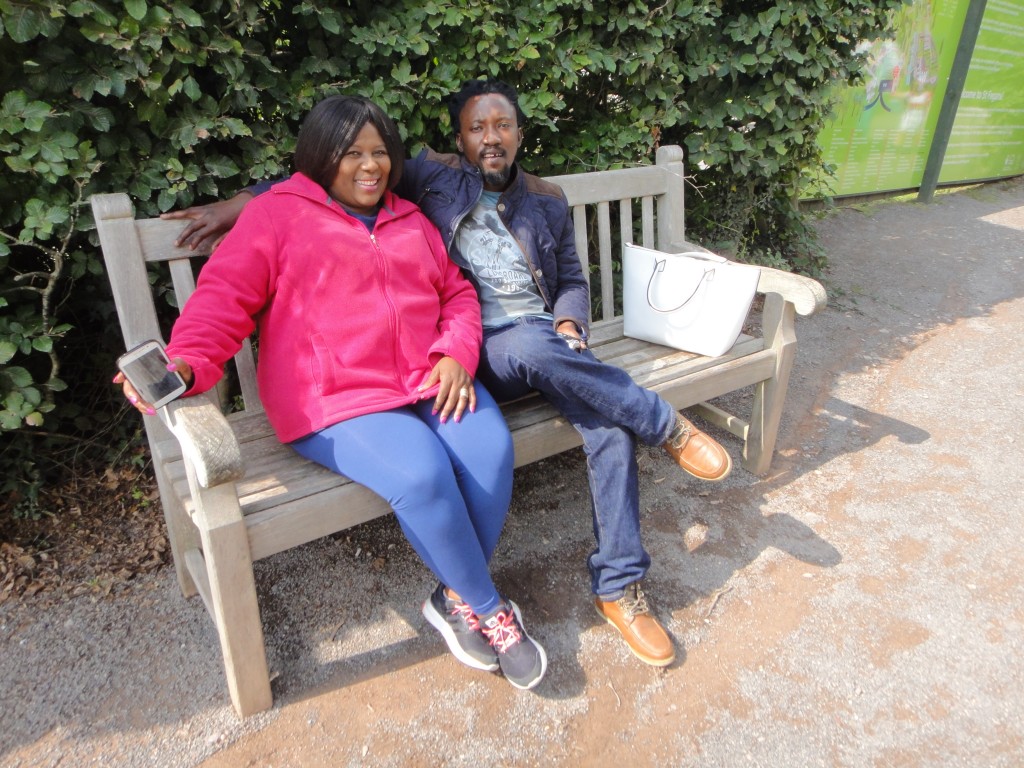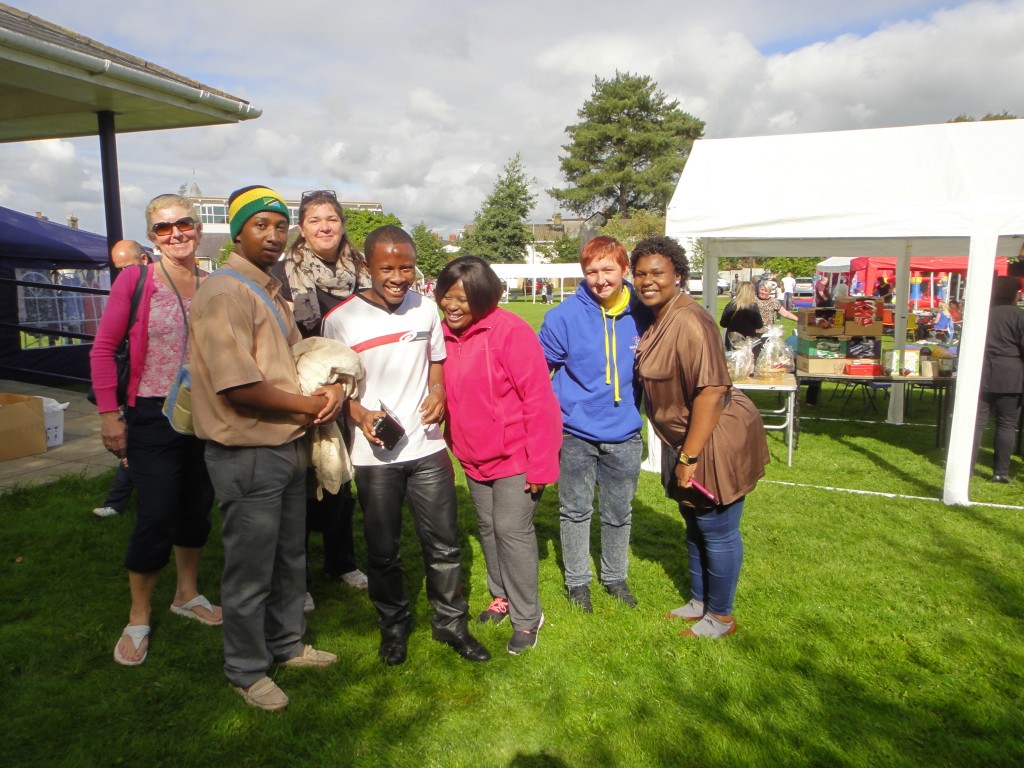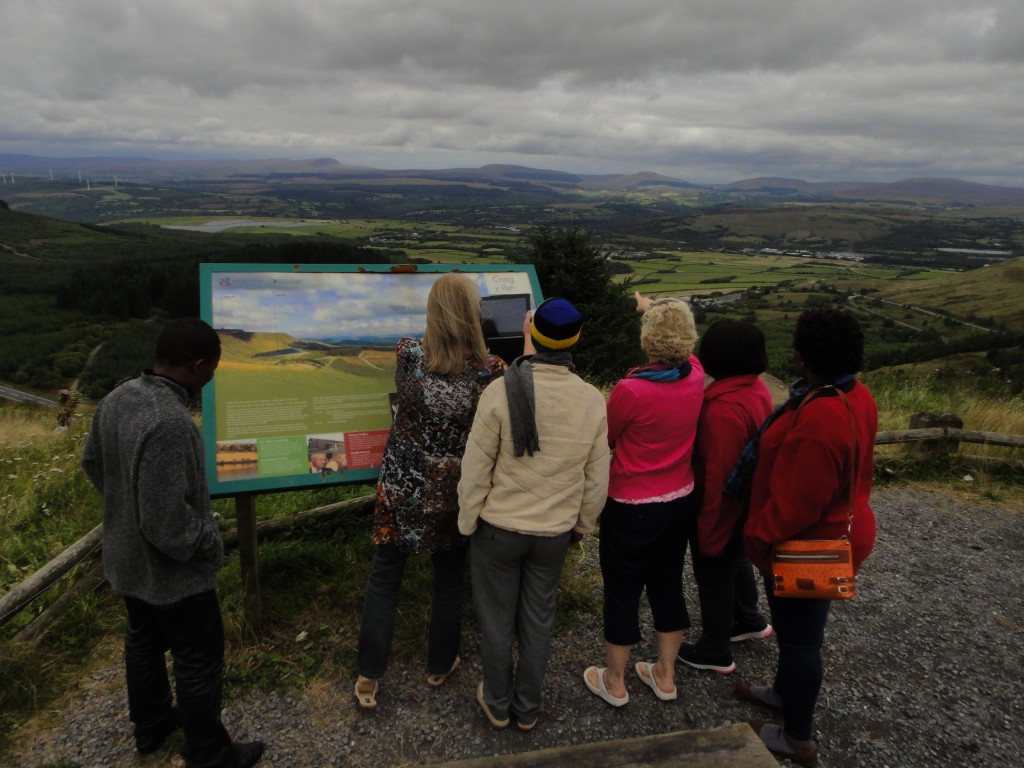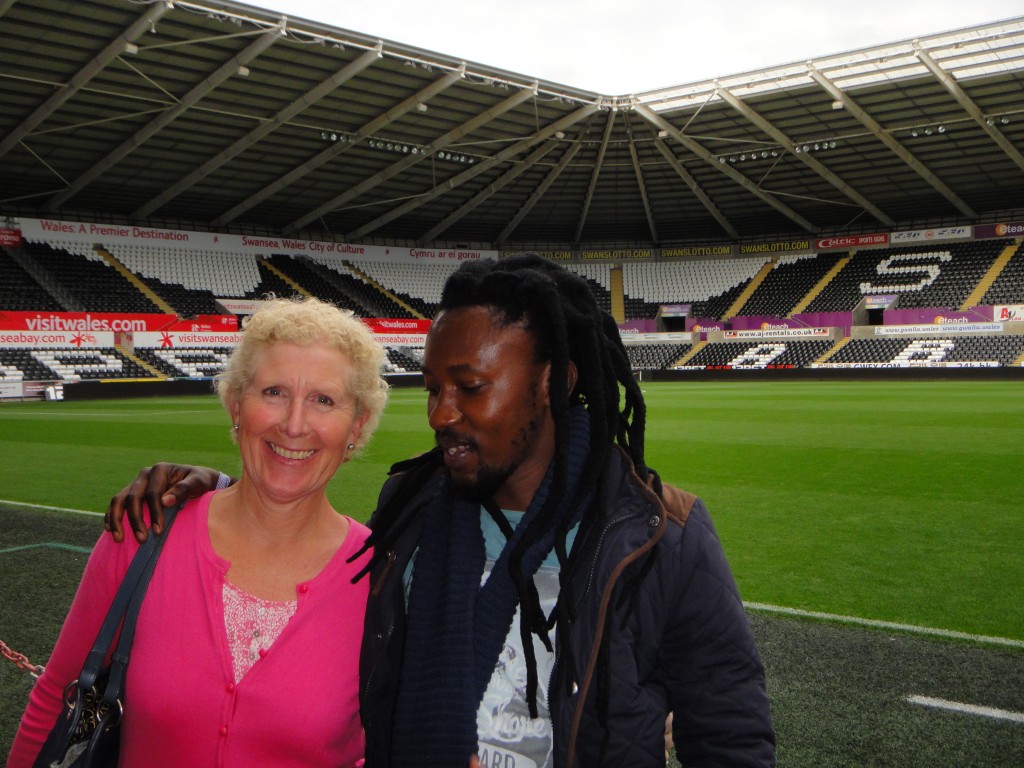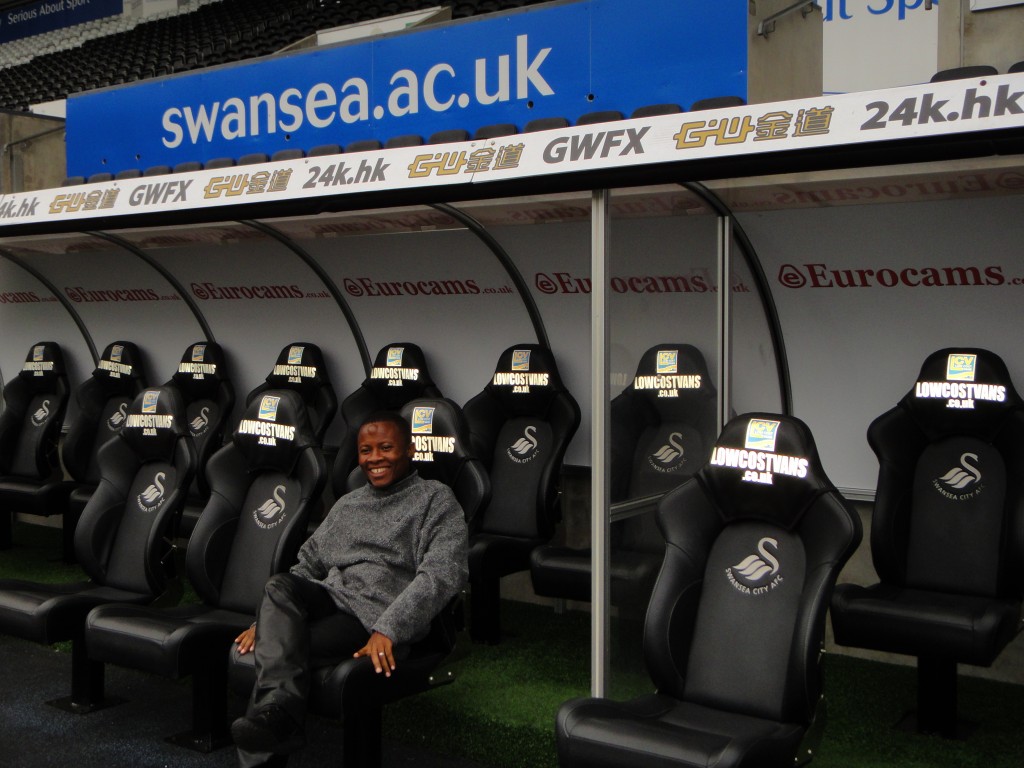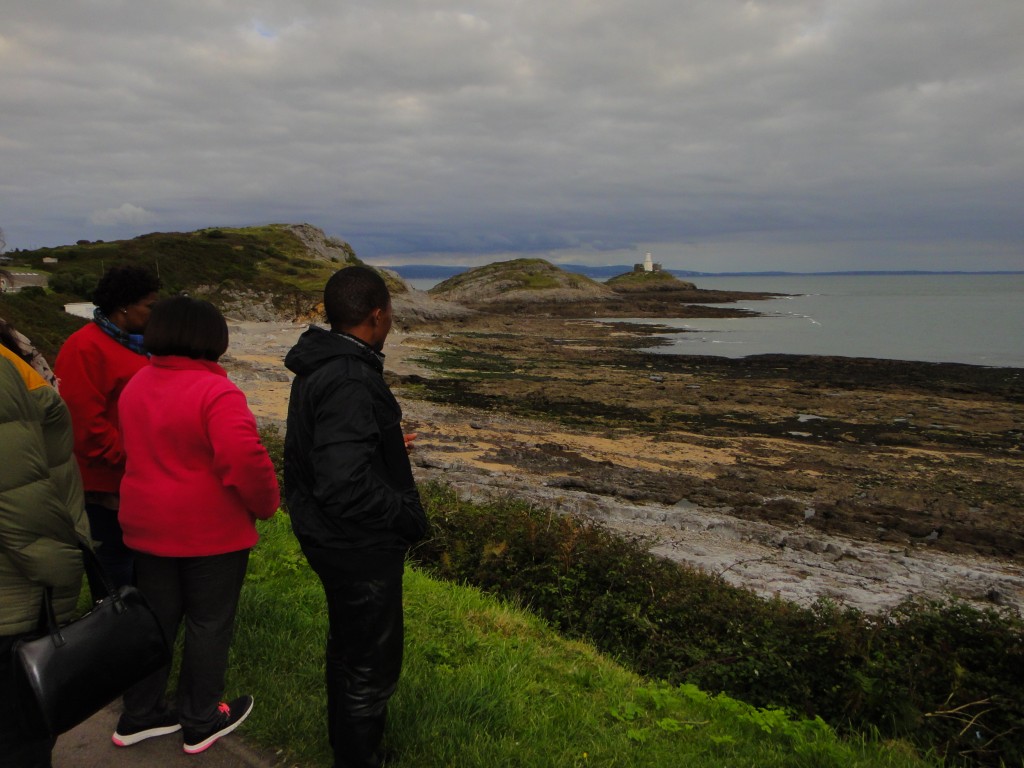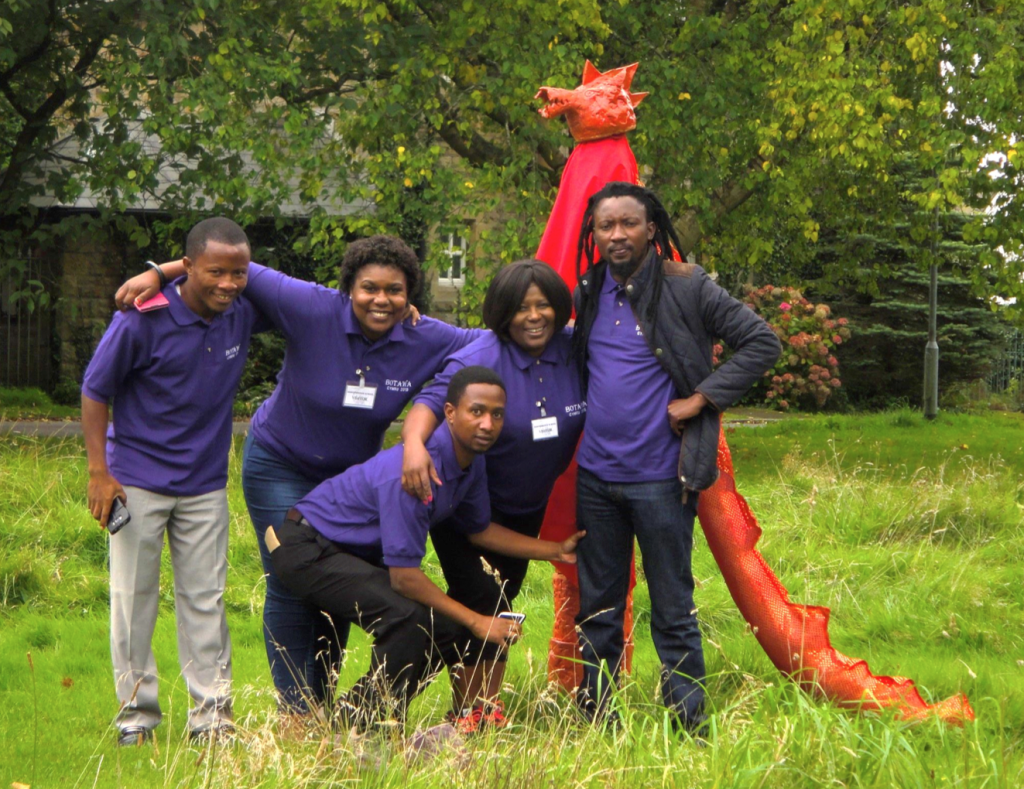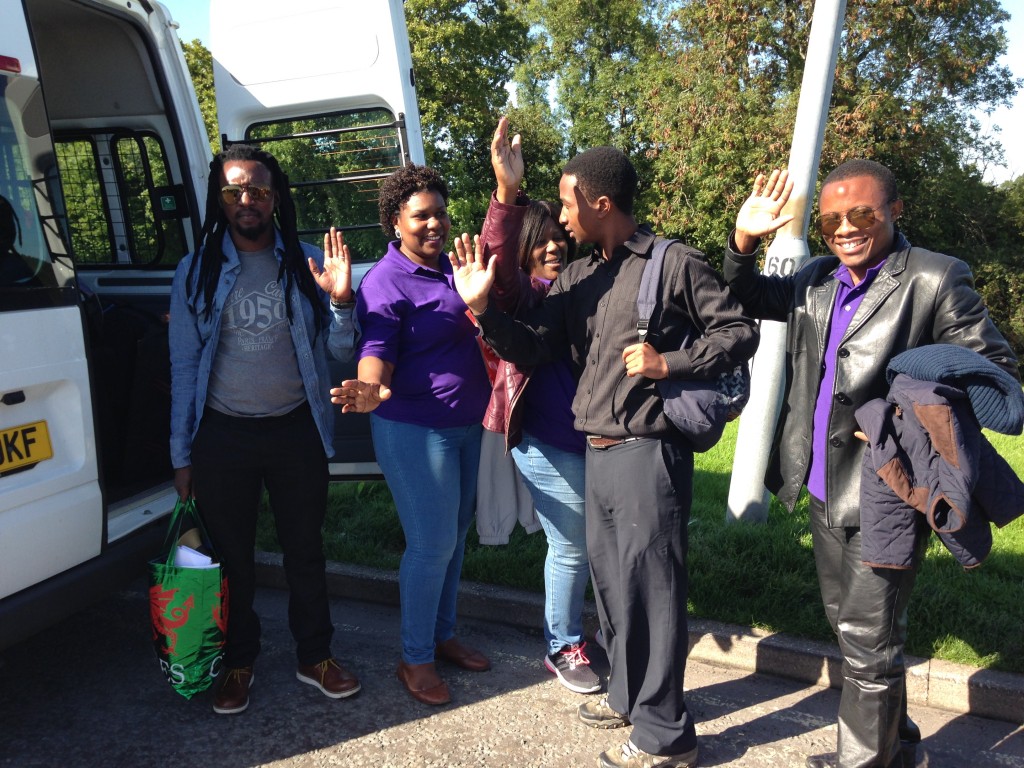In February 2015 teachers from Botswana and Wales travelled to Moshi. The focus for this year’s British Council Connecting Classrooms project is Picture Story Books for Primary age pupils and Rights of the Child for Secondary age pupils.
Identity and Belonging
This year we worked to develop a sense of Identity and Belonging through early engagement with global citizenship in the younger pupils. We sourced story and picture books from each country to exchange. Each country used the same books with their youngest children, as a springboard to ideas on identity and belonging. Books identified were “Kabo’s Diary” where a young boy in Wales journeys to Botswana to meet his grandparents, “Jambo means Hello” “We’re going on a Lion Hunt” “Floss the sheepdog” and “Handa’s surprise”. The selected books were examples of a predictable and patterned text set in different cultures We aimed to enable engagement with reading for pleasure whilst increasing young people’s awareness of global issues countries cultures and language
It was important that the book be something fun which the children would enjoy- perhaps because of the quality of illustrations, the language and rhythm such as repetition, call /response or use of clapping, animal noises etc. The class suggested questions, such as: What is the writing about? Where do the events happen? When did the events happen? Why do you like the writing? Who is your favourite character or moment, and why? Depending on the theme children drew pictures of story or characters, sequenced pictures or sentences to reconstruct story.
Teachers discussed with the class about what should be shared with the partner school.
Classes prepared photos, video clips, written questions or accounts, by hand and on the computer. It was important that each school kept copies of what was sent, perhaps in a display so that pupils are constantly reminded of the links. The class products were sent to the partner schools by post, email, WhatsApp etc and exchanged during Teacher exchange visits.
These books can be delivered in lessons using multisensory teaching methods such as story sacks which means that they are accessible to pupils with severe learning difficulties. Heronsbridge, Kgafela and Linchwe schools all cater for students with learning difficulties and sensory impairment and this activity gave teachers at these schools the opportunity to develop their pedagogical skills in differentiation and access to learning. We also shared techniques and resources such as brailed or symbolized stories. It also helped raise awareness in other schools of the potential for SEN students to access and benefit from education.
Further materials were shared during exchange visits and will be used to continue the book project over the coming year with the possibility of adding new books reflecting the different cultures and languages. This cross curricular story based approach to teaching and learning with an emphasis on developing pupils thinking/creative skills alongside structured mechanical reading, eg “What if” “alternative endings to stories” is a new concept for the African teachers who are used to a more prescriptive syllabus.
Our Books project provided a forum and stimulus for very young people’s intercultural dialogue and provided an activity where pupils have a really good time reading and talking about books! Our aim was to develop early engagement with global citizenship in the younger pupils. We wanted to engender a positive sense of their own identify whilst fostering a sense of curiosity and interest in how other people live their lives and the way in which climate, environment and culture make each of us different but of equal value. We wanted pupils to celebrate what makes each person and community unique but to recognise and embrace our many similarities as well.
Rights and responsibilities
Students became better informed on the UN Convention of Children’s Rights. They understand that some rights can be absolute whereas other can be conditional and may need to be balanced when they conflict.
They developed their understanding through a process of thoughtful discussion and reflection and have confidence to ask challenging questions about difficult and complex issues such as whether we can or should prioritise rights for children. They learned to communicate well in different ways, developing their proficiency in English and by using technology such as mobile phones and computers. They contributed to decision making and accepting group decisions and worked with others to complete something to a high standard which was applauded and celebrated by students in other countries.
Sustainable Living -Pupils continue to maintain and develop our horticulture projects and vegetable production. We aim to consolidate student awareness of water issues in all three countries by encouraging pupils to ask thoughtful questions about difficult and complex issues regarding sustainable living. Pupils are aware that human activity contributes to climate change and causes environmental damage and they can consider the effects these events have on the quality of life of future generations. They are aware through communication with students elsewhere of the environmental damage caused by flooding and drought e.g. soil erosion and land degradation. Older students have considered more complex situations within their own shared experiences where peoples’ wishes may bring conflict eg access to water for irrigation of sugar plantations in Tanzania which provide employment may leave insufficient water for traditional subsistence farming or use of rivers for commercial washing of vegetables may pollute water for those drawing water downstream for their personal use. Poor sanitation caused by water shortages has been identified as a major issue affecting pupil outcomes in our Tanzanian schools.
Rights &Responsibilities Even young children understood that they can make choices that do less environmental harm. Pupils identified what they could to make a difference, e.g. conserving water and recycling and they have become more aware of how small changes in their own lives can make a collective difference. Many pupils are able to take ideas and discuss them at home within their families and communities.
In Tanzania pupils have a very direct connection to and understanding of water shortages eg water is available at school only twice a week from a local faro scheme and must be lifted in buckets or with a stirrup pump in order to irrigate crops, their water supply at their hostel is not reliable and students carry water from a local river for washing and laundry. Sharing their challenges with pupils in Botswana and UK has raised awareness in staff, students and their families that in a fair world everyone would have such basic needs and rights met, but that this model of a fair world is not yet a reality.
An incident which exemplified to students in all schools how easily some children can be left without their basic rights to shelter and identity occurred when January 2015 an overnight fire at the Muungano school Hostel left 200 girls without accommodation or personal possessions. Students and their communities in all three countries responded immediately raising funds for emergency cover and eventually the rebuilding of the hostel, and replacement of personal possessions such as uniforms, bedding, books, toiletries.
A visit to Wales
In September 2015, Teachers from Tanzania and Botswana visited Wales. We continued our project work on Children’s rights and Picture story books, once again sharing ideas and resources to improve our teaching and student’s learning through exchanging cultures.

